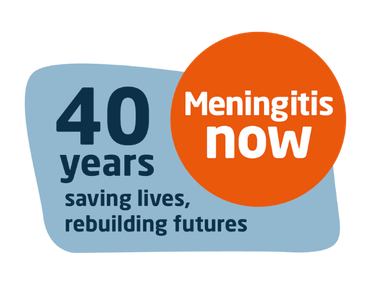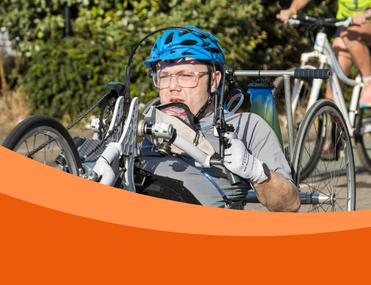Last year we held an Anxiety Management Course for adults of all ages who have had a meningitis experience. One of the people who attended this course wished to share their mental health journey after contracting meningitis and their thoughts on the course.
“In 2012 I ended up in an induced coma in intensive care diagnosed with meningio-encephalitis.
“This was a very sudden illness and afterwards I had feelings of vulnerability, health anxiety and shock. The idea that I would gradually get well again was eroded as I realised that some of my symptoms were going to be my new normal. These include some cognitive deficits as well as fatigue. These tend to be the main symptoms that affect me and can exacerbate each other.
"I also experience perseveration and anxiety. These also influence each other, use up cognitive "headroom" and hence increase fatigue. And so, it all snowballs.
“The anxiety mainly manifests as feelings of vulnerability because of the cognitive deficits that I have, as well as concerns about how I am perceived especially when fatigued.
“I also have more generalised anxiety stemming from the shock and subsequent worries about what happened to me and feelings of insecurity especially about my health. This tends to make me quite insular, and I have maintained very few personal relationships.
“I was made aware of the Anxiety Management course and because it was being run specifically with meningitis as the focus, I hoped that would help me. I also hoped and have found in the past, that because my problems tend to be interconnected even a marginal improvement in any symptom can have an overall effect on my quality of life.
“The fact that it was group and web-based was an opportunity for me to challenge my social anxiety and try an unfamiliar technology. It also allowed me to retain energy as travelling can affect my fatigue and reduce my energy reserves.
“The level of specific insight available in these sessions, the peer support and the information Sue, who led the workshop, was able to pack in was super helpful. I gained understanding and new strategies, as well as useful reminders, having had some similar therapy in the past.
“I have found this course to be one of the most useful things I have done in ten or so years, post-ABI. It was a very useful therapy for me at this stage after my illness.
“It is of course almost impossible to quantify the extent to which the course and similar treatments have had on my anxiety. Especially since it was not the first such intervention that I have taken advantage of. But I did notice a definite improvement in my mood by the end of the course and as it came at a time that I was just starting to venture out and about post covid it could not have come at a more useful time for me.
“Without the intervention I may have taken much longer to take steps to reduce the isolation that covid caused me. The course itself, the peer support from it and the compassion and understanding from the course leader and other attendees also contributed significantly to helping with feelings of shame that are an unfortunate side effect of losing one’s career due to illness and disability.
“My symptoms are so intertwined that any improvement, however small, is an improvement in my overall quality of life. I would not hesitate to reenroll, despite it being tiring and difficult for me to attend. So that proves to me that the effort the first-time round was of significant benefit to me and by extension my family.”
If you or a loved one has experienced meningitis and would like to access some support, reach out to our nurse-led Helpline by emailing helpline@meningitisnow.org.
To find similar support events for those impacted by meningitis check out our website.



